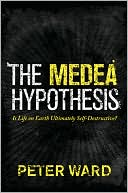Category Books
- Fiction Books & Literature
- Graphic Novels
- Horror
- Mystery & Crime
- Poetry
- Romance Books
- Science Fiction & Fantasy
- Thrillers
- Westerns
- Ages 0-2
- Ages 3-5
- Ages 6-8
- Ages 9-12
- Teens
- Children's Books
- African Americans
- Antiques & Collectibles
- Art, Architecture & Photography
- Bibles & Bible Studies
- Biography
- Business Books
- Christianity
- Computer Books & Technology Books
- Cookbooks, Food & Wine
- Crafts & Hobbies Books
- Education & Teaching
- Engineering
- Entertainment
- Foreign Languages
- Game Books
- Gay & Lesbian
- Health Books, Diet & Fitness Books
- History
- Home & Garden
- Humor Books
- Judaism & Judaica
- Law
- Medical Books
- New Age & Spirituality
- Nonfiction
- Parenting & Family
- Pets
- Philosophy
- Political Books & Current Events Books
- Psychology & Psychotherapy
- Reference
- Religion Books
- Science & Nature
- Self Improvement
- Sex & Relationships
- Social Sciences
- Sports & Adventure
- Study Guides & Test Prep
- Travel
- True Crime
- Weddings
- Women's Studies
The Medea Hypothesis: Is Life on Earth Ultimately Self-Destructive? »

Authors: Peter Ward
ISBN-13: 9780691130750, ISBN-10: 0691130752
Format: Hardcover
Publisher: Princeton University Press
Date Published: March 2009
Edition: (Non-applicable)
Author Biography: Peter Ward
Peter Ward's many books include the highly acclaimed "Rare Earth: Why Complex Life Is Uncommon in the Universe" and "Under a Green Sky" (Collins). He is professor of biology and Earth and space sciences at the University of Washington, and an astrobiologist with NASA.
Book Synopsis
"A provocative look at the history of our living planet. Ward offers a distinct perspective and argues strongly that the only intelligent choice is to manage ourselves and the environment. The Medea Hypothesis will cause anyone who cares about the environment to think differently."—Thomas E. Lovejoy, president of the H. John Heinz III Center for Science, Economics, and the Environment
"This book casts the environmental debate in a completely new and important light. Ward demolishes the comfortable illusion that nature will take care of us if we just let it. To survive in the long term, the Earth needs a management team—we humans have to take up the job."—Chris McKay, NASA Ames Research Center
"The Medea Hypothesis is provocative, extremely well-written, and very convincing."—Simon A. Levin, Princeton University
"For those comforted by the notion of a benevolent Gaia working to sustain life on the planet, Ward's Medea is a nightmare, one that has recurred many times in Earth's history and is coming again soon, unless we take action to combat the self-annihilating tendency of the biosphere."—Lee R. Kump, coauthor of Dire Predictions: Understanding Global Warming
"Serious and well written, The Medea Hypothesis is sure to generate controversy among the experts. I read it over a weekend and could hardly put it aside until I finished it."—Francisco J. Ayala, University of California, Irvine
"This is an important and significant contribution to the fields of geobiology and astrobiology because it offers a startling new interpretation of the nature of Darwinian evolution. Ward's conclusion is both troubling and provocative: life may be its own worst enemy. Like James Lovelock's Gaia hypothesis, Ward's Medea hypothesis is likely to be debated for the next thirty years."—Joseph L. Kirschvink, California Institute of Technology
"A provocative rethinking of the coevolution of life and its environment. Peter Ward mounts a sustained critique of optimizing/homeostatic Gaia, providing a lucid set of examples of significant positive feedbacks arising from life. This book will have a strong heuristic impact on future research."—David Schwartzman, author of Life, Temperature, and the Earth
Dr. Hein van Bohemen - Ecological Engineering
Reading the book will widen your field of vision about life on earth, which is still there after about 4 billion years.
Table of Contents
Introduction ix Chapter 1: Darwinian Life 1
Chapter 2: What Is Evolutionary "Success"? 14
Chapter 3: Two Hypotheses about the Nature of Life on Earth 24
Chapter 4: Medean Feedbacks and Global Processes 55
Chapter 5: Medean Events in the History of Life 72
Chapter 6: Humans as Medeans 91
Chapter 7: Biomass through Time as a Test 98
Chapter 8: Predicted Future Trends of Biomass 114
Chapter 9: Summation 126
Chapter 10: Environmental Implications and Courses of Action 128
Chapter 11: What Must Be Done 141
References 157
Index 173
Subjects
 Biology
Biology  Biology - General & Miscellaneous
Biology - General & MiscellaneousScience & Nature
 Earth Sciences
Earth Sciences  Earth Science - General & Miscellaneous
Earth Science - General & MiscellaneousScience & Nature
 Earth Sciences
Earth Sciences  Geochemistry
GeochemistryScience & Nature
 Earth Sciences
Earth Sciences  Geology - General & Miscellaneous
Geology - General & MiscellaneousScience & Nature
 Earth Sciences
Earth Sciences  Paleontology - General & Miscellaneous
Paleontology - General & MiscellaneousScience & Nature
 Evolution
Evolution  Evolution
EvolutionScience & Nature
 Nature
Nature  Dinosaurs
DinosaursScience & Nature
 Philosophy of Science
Philosophy of Science  Life (Biology)
Life (Biology)Science & Nature
 All Science & Nature
All Science & Nature  Biology & Life Sciences
Biology & Life SciencesScience & Nature
 All Science & Nature
All Science & Nature  Earth Science
Earth ScienceScience & Nature
 All Science & Nature
All Science & Nature  Ecology & Environmental Sciences
Ecology & Environmental SciencesScience & Nature
 All Science & Nature
All Science & Nature  Nature
NatureScience & Nature
 All Science & Nature
All Science & Nature  Science - General & Miscellaneous
Science - General & MiscellaneousNonfiction
 Science & Nature
Science & Nature  Biology
BiologyNonfiction
 Science & Nature
Science & Nature  Earth Sciences
Earth SciencesNonfiction
 Science & Nature
Science & Nature  Ecology & Environment
Ecology & EnvironmentNonfiction
 Science & Nature
Science & Nature  Evolution
EvolutionNonfiction
 Science & Nature
Science & Nature  Nature
NatureNonfiction
 Science & Nature
Science & Nature  Philosophy of Science
Philosophy of ScienceNonfiction
 Science & Nature
Science & Nature  All Science & Nature
All Science & Nature
